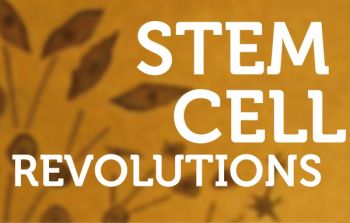Hope of stem cell patients must not be exploited, say experts
Posted on behalf of: Centre for Bionetworking and Department of Anthropology
Last updated: Thursday, 15 August 2013

A panel of experts have warned at a film screening in Brighton that hope in the promise of stem cell therapy must not be exploited.
As the film Stem Cell Revolutions shows, stem cells hold promise for many people with currently incurable conditions – but, because of the lengthy translational process from bench to bedside, some patients may be motivated to seek unproven therapy elsewhere.
The award-winning film looks back at stem cell discoveries that have revolutionised our understandings of science and medicine, as well as providing a glimpse into possible future treatments. It also explains the science of stem cells in a clear and accessible way.
Speaking at a Q&A session after the film screening on Tuesday (13 August), Professor Clare Blackburn, science producer of the film and Professor of Tissue Stem Cell Biology at the University of Edinburgh, emphasised that she and many other scientists have put great efforts into providing the public with information so that they would not choose to go down the medical tourism route.
Dr Tim Chevassut, Senior Lecturer in Haematology at Brighton and Sussex Medical School (BSMS), agreed that it takes time for new discoveries to become routine therapy. He warned against stem cell tourism and companies that promise ‘miracle’ cures to patients at great cost, “who then deliver nothing at best - and at worst leave the patients worse off and penniless”.
Professor Margaret Sleeboom-Faulkner is Director of the University of Sussex’s Centre for Bionetworking, which organised the event.
She pointed out that when patients go abroad, there is a need for both better regulations and better understandings of the conditions under which experimental therapy takes place. For example, experimental treatment given under ‘hospital exemption’ in one country might be given in a completely different context in another country.
Dr Carolyn Heitmeyer from the Centre for Bionetworking cautioned that it would be wrong to characterise countries such as India solely as a place of ‘rogue scientists’, as there is a huge diversity of stem cell research and therapy going on there. LV Prasad Hospital in Hyderabad, which is portrayed in the film, for example, has a strong track record in using cornea stem cells to treat patients.
The panel agreed that, while stem cells hold huge promise and hope for many patients - with exciting research going on in the UK and around the world - we must also take care not to over-hype patients’ expectations and we must continue to examine regulatory and ethical issues that come with new scientific discoveries.
Feedback from the 40 members of the public who attended the event was overwhelmingly positive.

